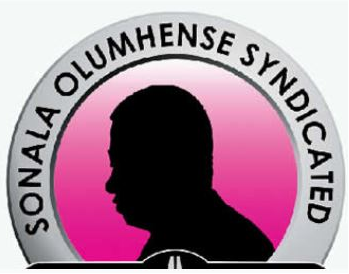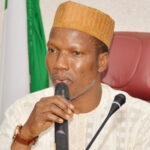I published my first observations on the political party now known as the All Progressives Congress (APC), 11 years ago, titled, “Welcoming the APC.”
Ten years later, I found myself warning Nigerians: “To Vote APC In 2023, You Must First Hate Yourself (1) and, “To Vote APC In 2023, You Must First Hate Yourself (II)”.
“Nigeria’s sinners are not only in the PDP,” I said in that introductory piece in 2013, nearly two and a half years before one Muhammadu Buhari of Daura arrived in Aso Rock. “The PDP has become the symbol of Nigeria’s decay only because of its carnage in the center, but none of the parties that have held power in the States in the past 14 years are innocent.
“In other words, the real issue is not the PDP; it is the Nigerian politician. The question is whether the Nigerian politician of the APC is different, or will be.”
I stressed that the task at hand was not simply to remove the PDP from power, as much as Nigerians desired that.
“…It is putting in, and putting first, Nigeria. To do that, the APC must demonstrate the capacity, not just the rhetoric, for democracy. It is an age-old challenge: many proclaim it, but few are strong enough to understand its implications.”
Said an APC official at the launching, “We resolve to form a political party committed to the principles of internal democracy, focused on serious issues of concern to our people, determined to bring corruption and insecurity to an end, determined to grow our economy and create jobs in their millions through education, housing, agriculture, industrial growth etc, and stop the increasing mood of despair and hopelessness among our people.”
I described those priorities, expressed even more broadly elsewhere, as “an overloaded shopping basket,” and wondered if the new party had “the political and patriotic capital to pay for it.”
I recommended that the party establish “clear standards and demonstrate that those standards are higher than partisan politics and the APC itself.”
I challenged the party to show good faith by setting and publishing “a code of conduct and of obligations” to demonstrate that it understood the challenge and would subordinate itself to it.
Read, then, the APC Manifesto of 2015. Not only did the party betray all who believed it and voted for it, it proved to be so inferior to the PDP that it owes that party an apology.
To be fair, in the intervening years it quickly became clear that the two parties are really the same. Among many others: in July 2016 I decried its revisionist nature, and just months later, the fall of the party and its chameleon of a leader. Early in 2018, I called the bi-party party the APDPC.
If you are a Nigerian of any creed or cudgel, and you are currently worried about whether there is a future for Nigeria, remember that just eight years after it came to power, APC was requiring blood transfusion.
That transition was called “Renewed Hope,” with an Action Plan exactly twice as long as the party manifesto. Curiously, the new plan appears to be collapsing more than twice as fast, Nigeria plunging into deeper darkness and despair in a matter of months.
Because you cannot find an answer unless you understand the problem, we must be careful.
In 2013, we stressed that APC would be held to a higher standard than the PDP because it had proclaimed itself to be the superior, asking whether APC was merely opportunism. “Let the new party define its character by publicly setting the lowest limits of its aspirations at the level of the most essential reforms that Nigeria needs,” I urged.
APC did not. It chose to travel as an unprincipled bunch of pirates, replacing effort and character with propaganda and outright lies. In none of its cardinal programmes was it ever close to success; in none of them did it ever offer the truth.
In a March 4, 2018 story on the mounting pressures on Muhammadu Buhari not to seek a second term, for instance, the New York Times observed, “The war with Boko Haram still rages, with suicide bombers pulling off regular attacks and militants conducting increasingly complex operations. About 100 students from Chibok are still held hostage.
“Yet Mr. Buhari has baffled the nation by repeatedly saying Boko Haram has been defeated.”
In my “Buhari Does Not Want To Be Called A Statesman,” early in 2018, I asked: “What has Buhari proved? Only that he wanted the opportunity, but not the poetry of Time itself, the adulation reserved only for statesmen. Power, not responsibility. Just like the PDP.”
Buhari himself, at the end of his regrettable eight years confirmed that I had been right: “I can’t wait to go home to Daura,” he said in April 2023. “…I got what I wanted and will quietly retire to my hometown.”
Ahhh, Daura: population 337,432, to which, according to the Katsina Post in March 2023, Buhari ensured about three major projects per year, alongside unveiling his nepotism. That same nepotism, widely-criticized by southerners throughout the Buhari years, has now been given a new lease of life in the Bola Tinubu administration.
The point is that the Nigeria rot is not the product of a political party but of the Nigerian politician. Until the politician accepts government as serious responsibility rather than a buffet for himself, Nigeria will continue to be the laughingstock of Africa.
It is this negative concept of a personal buffet that nurtures nepotism and corruption and indolence and incompetence. How many governors—Northerner or southerner, Muslim or Christian, educated or illiterate—have in the past two decades left office without salting away half of the state for himself?
How many presidents in the past two decades have read any of the audit reports produced by the Auditor-General? Why is it that for almost every other democratic nation on earth, there are comprehensive judiciary and legislative archives, but the National Assembly of Nigeria and the Supreme court have none? Where are the archives of the presidency, or for that matter, the 36 governorships, since 1999?
Concluding my August 2013 welcome of APC, I wrote, “The PDP must go. But the APC must prove that it is the answer.”
But APC did not become merely worse than the PDP: it became so much frightening worse that people now openly express a preference for it. Maybe they are right: it is APC, not PDP, that got us here.
The problem which confronts Nigeria, therefore, is not whether APC can or should respond to the crisis of a nation hurtling towards oblivion with such obvious symptoms as starvation, insecurity, a disappearing naira, and a collapsing economy, or what that should consist of. APC cannot do it because having come to serve itself, not to serve, it cannot metamorphose into a different animal.
The real question is whether Nigerians are ready to confront APC and its larger duplicity family, and how. You cannot accept cynicism, deception, indolence, and indifference as hope. You cannot mistake the crime to be solved for the solution to the crime.

 Join Daily Trust WhatsApp Community For Quick Access To News and Happenings Around You.
Join Daily Trust WhatsApp Community For Quick Access To News and Happenings Around You.
